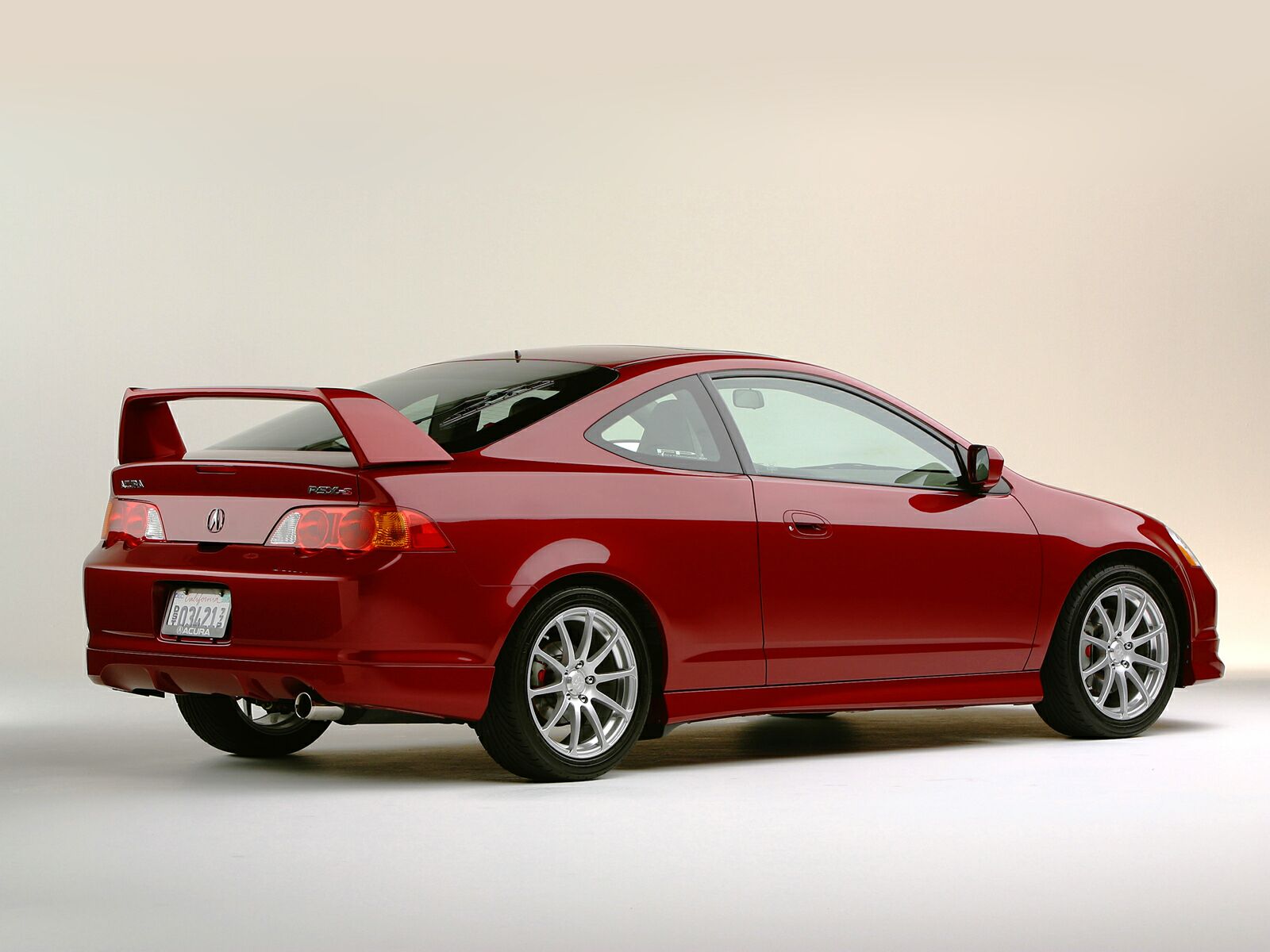 The RSX is somewhat familiar as a redesigned Integra. The current version has either a 160 or a 200 hp four-cylinder power plant, with the latter coming standard in the Type S. The more powerful engine makes its horses partly through an advanced valve timing technology, which shifts into high performance mode at 6,000 rpm. The result is a kick in the pants similar to that of a turbocharger suddenly spooling up.
The RSX is somewhat familiar as a redesigned Integra. The current version has either a 160 or a 200 hp four-cylinder power plant, with the latter coming standard in the Type S. The more powerful engine makes its horses partly through an advanced valve timing technology, which shifts into high performance mode at 6,000 rpm. The result is a kick in the pants similar to that of a turbocharger suddenly spooling up. The good news is that the RSX has superb handling and strong acceleration, especially if you are already running the engine fast, but it is easier to shift and to manage than many other sports cars. The bad news is that the engine is loud and raucous, not unlike the early Neon engines, and that makes you want to avoid going up to the speeds where the RSX really does its stuff. In everyday traffic, sprints that run up to 6,000 rpm are also relatively rare.
The good news is that the RSX has superb handling and strong acceleration, especially if you are already running the engine fast, but it is easier to shift and to manage than many other sports cars. The bad news is that the engine is loud and raucous, not unlike the early Neon engines, and that makes you want to avoid going up to the speeds where the RSX really does its stuff. In everyday traffic, sprints that run up to 6,000 rpm are also relatively rare.Because of the way the engine scales up to power, and also because of the ease of shifting, we recommend the manual over the automatic, though both get similar gas mileage. The Type S has a six-speed manual, but that’s not a good enough reason to buy one over a base RSX.
 At high speeds, even the top gear lets the engine run fast, bringing a great deal of noise into the cabin. At lower speeds, the engine is quieter. The six-speed is closely spaced, which can sometimes make choosing a gear more difficult.
At high speeds, even the top gear lets the engine run fast, bringing a great deal of noise into the cabin. At lower speeds, the engine is quieter. The six-speed is closely spaced, which can sometimes make choosing a gear more difficult.Handling is excellent, with the RSX whipping around turns with almost no body roll, responsive steering, and absolutely no sense of uncertainty. The tight steering helps drivers to get the most out of the RSX’s turning ability. It can deal with bumps and rain, as well, unlike some other suspensions we could mention. The only drawback is almost inevitable in front wheel drive – while the wheel doesn’t leap to one side when you hit the gas, you do lose some steering ability as the front tires are asked to do two things at once. This usually is not a problem.
 The decision to brand the RSX as an Acura instead of a Honda is odd when you consider the ride, which in the Type S at least is compromised to bring you outstanding handling. Thus, despite the luxury car name, the RSX Type S has a very firm ride that lets you feel, albeit cushioned, every bump and road imperfection.
The decision to brand the RSX as an Acura instead of a Honda is odd when you consider the ride, which in the Type S at least is compromised to bring you outstanding handling. Thus, despite the luxury car name, the RSX Type S has a very firm ride that lets you feel, albeit cushioned, every bump and road imperfection. The Acura label does apply to the amenities, at least. The climate control uses round vents which reduce noise and can easily be closed, and the chrome and black instrument panel is very tastefully done for a sporty yet somewhat elegant look.
The Acura label does apply to the amenities, at least. The climate control uses round vents which reduce noise and can easily be closed, and the chrome and black instrument panel is very tastefully done for a sporty yet somewhat elegant look.It avoids BMW-blandness and Audi TT-garishness. At night, the Type S’ black-on-white gauges have red back lighting, with thin circles outlining the speedometer and standard tachometer. The result is surprisingly pleasant and sporty. The only distractions are the odometer, whose red numbers bring up a sense that a warning light is on, and the speedometer, which goes up to 160 mph and uses only 270 degrees of a circle to do it. The result is that the speeds most people spend most of their time at are all compressed into a very small space.
 The controls are all easy to use, including the sensibly designed climate control and stereo. The thermostatic climate control uses three knobs, with buttons in the center, making them easy to use without being distracting. The cruise control is activated by a button on the dash, but remembers its setting even after you shut the engine. The cruise buttons are on the steering wheel,and are very large to make them easier to use.
The controls are all easy to use, including the sensibly designed climate control and stereo. The thermostatic climate control uses three knobs, with buttons in the center, making them easy to use without being distracting. The cruise control is activated by a button on the dash, but remembers its setting even after you shut the engine. The cruise buttons are on the steering wheel,and are very large to make them easier to use. There is a sliding bin on the center console which contains both a shallow storage area and deep cup holders. Both doors have map pockets, and there is a depression between the front seats that can be used for temporary storage. The storage area under the center stack is subtly lit at night, in red to preserve night vision.
There is a sliding bin on the center console which contains both a shallow storage area and deep cup holders. Both doors have map pockets, and there is a depression between the front seats that can be used for temporary storage. The storage area under the center stack is subtly lit at night, in red to preserve night vision.Visibility is compromised by the large rear pillars, which can make merging and backing up an adventure, while daily use of the RSX is hampered by massive, heavy doors and a seat belt which does not adjust up or down, and is placed too far back to be easily reached.
No comments:
Post a Comment